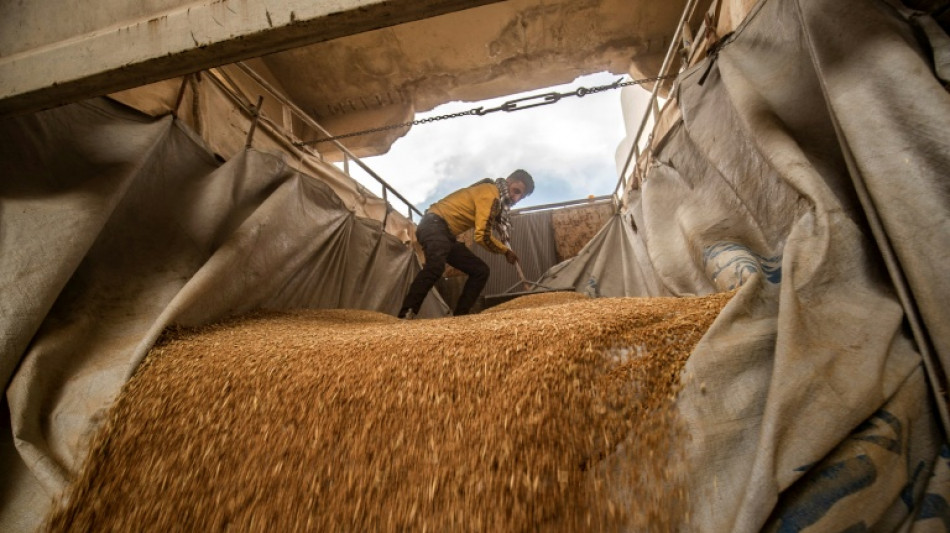
-
 India bids tearful farewell to maverick musician
India bids tearful farewell to maverick musician
-
Sunset for Windows 10 updates leaves users in a bind

-
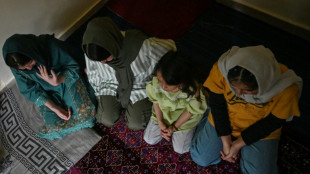 Hopes of Western refuge sink for Afghans in Pakistan
Hopes of Western refuge sink for Afghans in Pakistan
-
'Real' Greek farmers fume over EU subsidies scandal
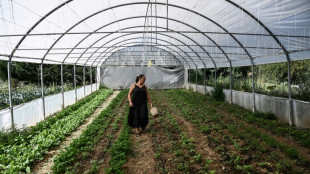
-
 Trump to see Zelensky and lay out dark vision of UN
Trump to see Zelensky and lay out dark vision of UN
-
US lawmaker warns of military 'misunderstanding' risk with China

-
 Emery seeks Europa League lift with Villa as Forest end long absence
Emery seeks Europa League lift with Villa as Forest end long absence
-
Egypt frees activist Alaa Abdel Fattah after Sisi pardon

-
 Gibbs, Montgomery doubles as Lions rampage over Ravens
Gibbs, Montgomery doubles as Lions rampage over Ravens
-
Asian markets struggle as focus turns to US inflation

-
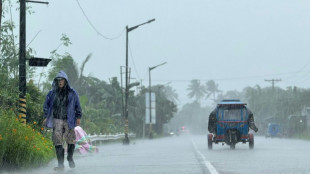 Schools shut, flights cancelled as Typhoon Ragasa nears Hong Kong
Schools shut, flights cancelled as Typhoon Ragasa nears Hong Kong
-
Maverick Georgian designer Demna debuts for Gucci in Milan

-
 What do some researchers call disinformation? Anything but disinformation
What do some researchers call disinformation? Anything but disinformation
-
Jimmy Kimmel show to return Tuesday

-
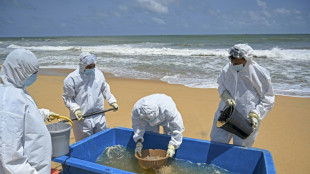 Singapore firm rejects $1bn Sri Lankan pollution damages
Singapore firm rejects $1bn Sri Lankan pollution damages
-
Chile presidential contender vows to deport 'all' undocumented migrants

-
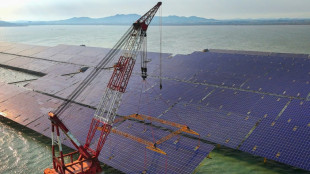 China may strengthen climate role amid US fossil fuel push
China may strengthen climate role amid US fossil fuel push
-
Ryder Cup captains play upon emotions as practice begins

-
 Bradley defends US Ryder Cup player payments as charity boost
Bradley defends US Ryder Cup player payments as charity boost
-
Trump ties autism risk to Tylenol as scientists urge caution

-
 Dembele beats Yamal to Ballon d'Or as Bonmati retains women's award
Dembele beats Yamal to Ballon d'Or as Bonmati retains women's award
-
Strength in Nvidia, Apple helps lift US equities to new records

-
 Man City 'keeper Donnarumma says would have stayed at PSG
Man City 'keeper Donnarumma says would have stayed at PSG
-
49ers ace Bosa to miss season after knee injury: reports

-
 Canada wildlife decline 'most severe' in decades: WWF
Canada wildlife decline 'most severe' in decades: WWF
-
PSG star Dembele wins men's Ballon d'Or

-
 Napoli beat battling Pisa to maintain perfect Serie A start
Napoli beat battling Pisa to maintain perfect Serie A start
-
Spain's Aitana Bonmati wins Women's Ballon d'Or

-
 Jimmy Kimmel show to return Tuesday: Disney
Jimmy Kimmel show to return Tuesday: Disney
-
Marseille inflict first defeat of season on PSG in Ligue 1

-
 White House promises US-controlled TikTok algorithm
White House promises US-controlled TikTok algorithm
-
Trump expected to tie autism risk to Tylenol as scientists urge caution

-
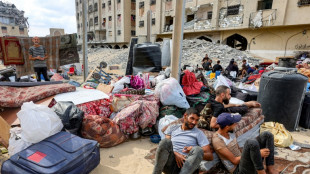 Macron recognizes Palestinian state at landmark UN summit
Macron recognizes Palestinian state at landmark UN summit
-
Hong Kong prepares for 'serious threat' from Super Typhoon Ragasa
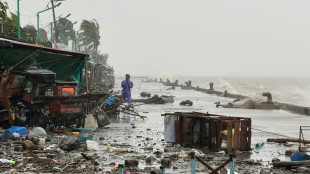
-
 S. Korea court issues arrest warrant for Unification Church leader: Yonhap
S. Korea court issues arrest warrant for Unification Church leader: Yonhap
-
New US Fed governor says rates should be around 'mid-2%'

-
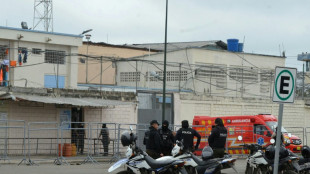 14 killed as rival Ecuadoran inmates fight with guns, explosives
14 killed as rival Ecuadoran inmates fight with guns, explosives
-
Dozens of French towns flout government warning to fly Palestinian flag
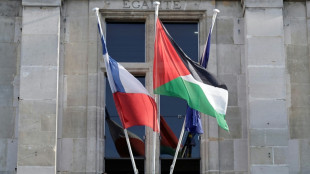
-
 Nvidia to invest up to $100 bn in OpenAI data centers
Nvidia to invest up to $100 bn in OpenAI data centers
-
US mulls economic lifeline for ally Argentina

-
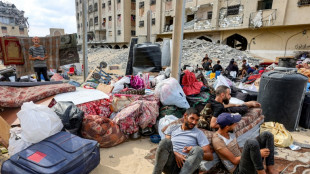 France to recognize Palestinian state at contentious UN
France to recognize Palestinian state at contentious UN
-
Museum or sheikh? World's second largest diamond awaits home

-
 UK charities axe Prince Andrew's ex-wife over Epstein email
UK charities axe Prince Andrew's ex-wife over Epstein email
-
Google fights breakup of ad tech business in US court

-
 US pleads for new beefed-up multi-national force in Haiti
US pleads for new beefed-up multi-national force in Haiti
-
'Don't repeat our mistakes' - Russian writer Akunin warns against creeping repression
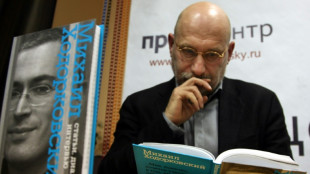
-
 Jews flock to Ukraine for New Year pilgrimage despite travel warning
Jews flock to Ukraine for New Year pilgrimage despite travel warning
-
Trump autism 'announcement' expected Monday

-
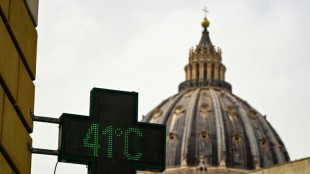 Over 60,000 Europeans died from heat during 2024 summer: study
Over 60,000 Europeans died from heat during 2024 summer: study
-
Clashes as tens of thousands join pro-Palestinian demos in Italy


Syria's wheat war: drought fuels food crisis for 16 million
Rival Syrian and Kurdish producers are scrambling for shrinking wheat harvests as the worst drought in decades follows a devastating war, pushing more than 16 million people toward food insecurity.
"The country has not seen such bad climate conditions in 60 years," said Haya Abu Assaf, assistant to the United Nations Food and Agriculture Organization (FAO) representative in Syria.
Syria's water levels have seen "a very significant drop compared to previous years, which is very worrying", Abu Assaf told AFP, as a relatively short winter rainy season and decreased rainfall take their toll.
"A gap of between 2.5 to 2.7 million tonnes in the wheat crop is expected, meaning that the wheat quantity will not be sufficient to meet local needs," Abu Assaf said, putting "around 16.3 million people at risk of food insecurity in Syria this year".
Before the civil war erupted in 2011, Syria was self-sufficient in wheat, producing an average of 4.1 million tonnes annually.
Nearly 14 years of conflict have since crippled production and devastated the economy.
The FAO estimates that harsh weather has impacted nearly 2.5 million hectares of wheat-growing land.
"Around 75 percent of the cultivated areas" have been affected, as well as "natural pastures for livestock production", said Abu Assaf.
- Imports, competition -
To bridge the wheat gap, imports would be essential in a country where around 90 percent of the population lives in poverty.
Before his ouster in an Islamist-led offensive in December, Syria's longtime ruler Bashar al-Assad used to rely on ally Russia for wheat.
In April, new authorities reported the first wheat shipment since his removal arrived in Latakia port, with more Russian shipments following.
Iraq also donated more than 220,000 tonnes of wheat to Syria.
During the war, Damascus competed with the semi-autonomous Kurdish administration in the northeast to buy wheat from farmers across fertile lands.
Last year, Assad's government priced wheat at $350 per tonne, and the Kurds at $310.
After Assad's ouster, Damascus and the Kurds agreed in March to integrate Kurdish-led institutions into the new Syrian state, with negotiations ongoing on implementation.
Damascus set wheat prices this month at between $290 and $320 per tonne, depending on the quality, plus a $130 bonus.
The Kurdish-led administration offered $420 per tonne including a $70 bonus.
- 'Poverty and hunger' -
Damascus' agriculture ministry expects a harvest of 300,000 to 350,000 tonnes in government-controlled areas this year.
Hassan Othman, director of the Syrian Grain Establishment, acknowledged Syria was not self-sufficient, in comments on state television.
But he said authorities were working "to ensure food security by importing wheat from abroad and milling it in our mills".
In northeast Syria's Amuda, farmer Jamshid Hassu, 65, inspected the tiny wheat grains from his fields, which cover around 200 hectares (around 500 acres).
Despite heavy irrigation efforts to offset scarce rainfall, he said, production has halved.
The FAO's Abu Assaf said indicators showed that "about 95 percent of rain-fed wheat has been damaged and affected", while irrigated wheat yields were down 30 to 40 percent.
Hassu, who has been farming for four decades, said he had to pump water from depths of more than 160 metres (525 feet) to sustain his crops as groundwater levels plunge.
Agriculture remains a vital income source in rural Syria, but without urgent support, farmers face ruin.
"Without support, we will not be able to continue," Hassu warned.
"People will suffer from poverty and hunger."
B.Baumann--VB
